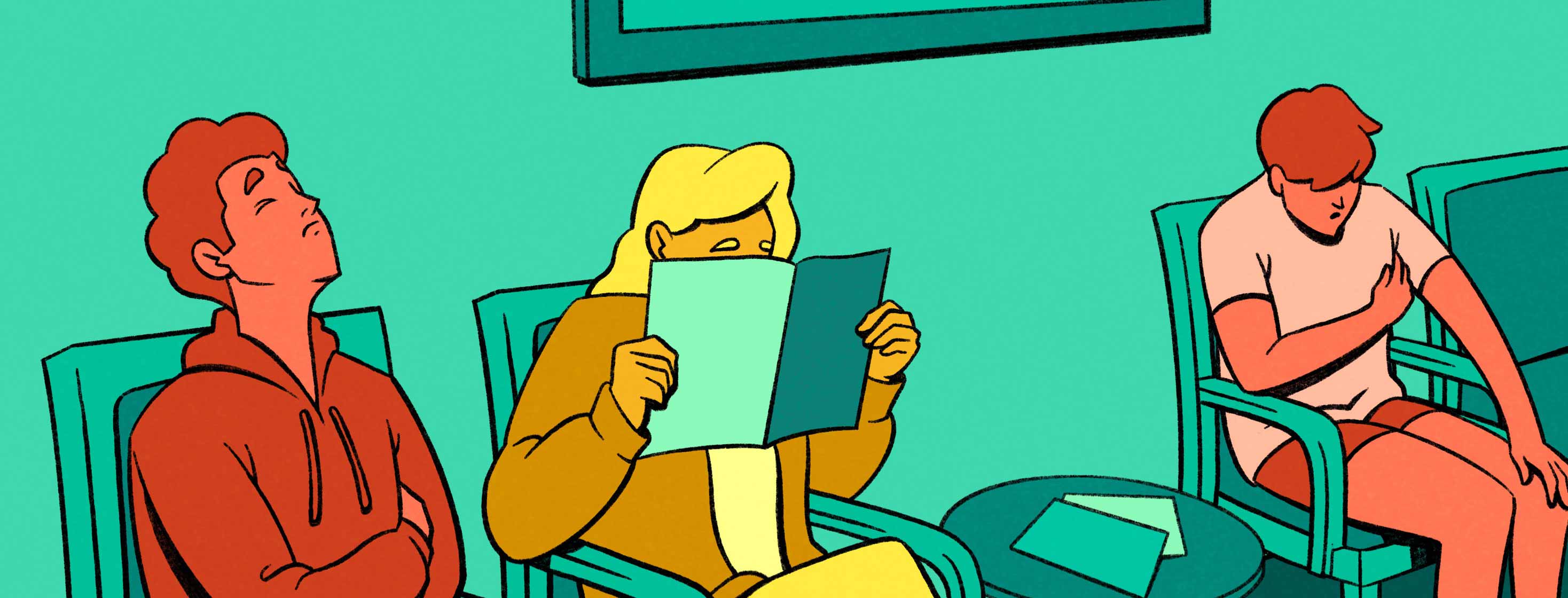Just Be Kind
We’ve all spent time in doctors' waiting rooms, sometimes for only a few minutes and sometimes much longer. We may have been alone or we may have had the company of a family member or friend to help make the time pass a little more quickly, to help keep our thoughts from running rampant in a way that is far from helpful or encouraging.
I think in most cases, going for any kind of medical appointment is stressful no matter how simple you expect the appointment to be. Based on observation through many appointments for both my husband with prostate cancer and myself with breast cancer, many others seem to feel the same way. It’s sometimes a guarantee that there will be a lot of scared people waiting and sitting beside you, people who are just as stressed as you are because of the unknown of what may take place during each appointment and after.
Coping with anxiety before an appointment
As I look around at the other patients in the oncology unit of our local cancer hospital, I realize that cancer impacts everyone differently in so many ways. Many patients are nervous but able to walk to the exam room. For others, cancer has progressed to the point where they need additional support or have limited mobility. While cancer is the reason we are all there, and it’s certainly not a good or welcome reason, my husband and I still have the ability to have some normalcy in our lives.
In our experience, we both know that anxiety before any appointment is something that will occur but we try to manage as best we can. Everyone has different coping mechanisms, but here are a few that work for us.
Keeping busy
We keep busy before an appointment. Sometimes anxiety starts early - a week or 2 before the scheduled exam or test date. Occupying the mind with something else, even if for only a little while, helps us breathe a bit easier, slowing down the nervous anticipation.
Doing something positive for our bodies
If eating before an appointment is not prohibited because of testing procedures, we try to eat a healthy meal. I’m not sure the food itself is what helps calm us, but the fact that we are doing something positive for our bodies is encouraging and takes a little bit of the edge off our anxiety.
Practicing gratitude
Another strategy is to be grateful. While we’re certainly not glad we have so many appointments for a reason such as prostate or breast cancer, we have gratitude for the fact that we have good medical care, competent physicians, and insurance that allows us to access the care we need. And for us, prayer is important. Our faith has brought us through many struggles and has eased the path before us.
Emotions in the waiting room
Fear is contagious. Anger is contagious. Impatience is contagious. We all feel it permeating the environment around us and can’t just ignore how it feels. In the waiting room, we look at the faces of others who surround us, slyly because no one wants to really be observed. It’s hard to not show our own emotions as we see those who are truly suffering. Many suffer in a way that seems way beyond what any human should experience.
But … through our fear, through our own anger, through our own angst, we can make a decision to show kindness to one another. We can recognize we have a “relationship” we’d rather not have. But we also have the power to keep our illnesses from impacting us to the point where we direct negativity at others whether through word, action, or look.
Just be kind
The last couple years, the term “Be Kind” has been evident everywhere. Television commercials, neighborhood signs, shirts with an imprint of those 2 little, but very important words all remind us of how important and effective kindness can be.
Let’s all try to just be kind. It’s amazing how that small action can help us personally just as much as it can help the recipient of our kindness. Be Kind.

Join the conversation